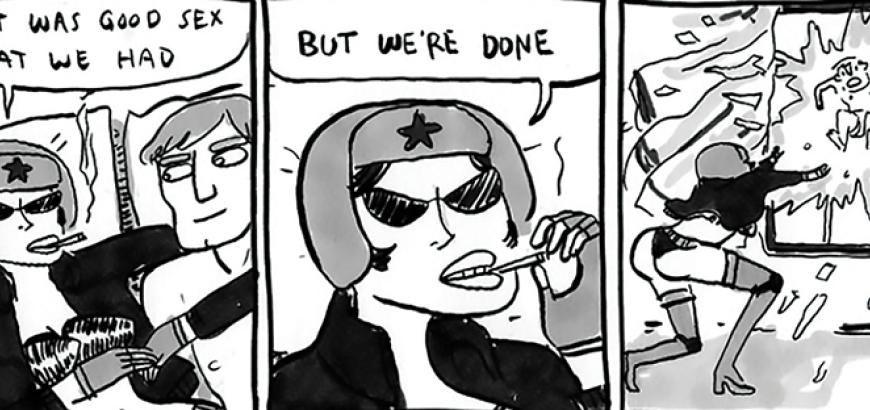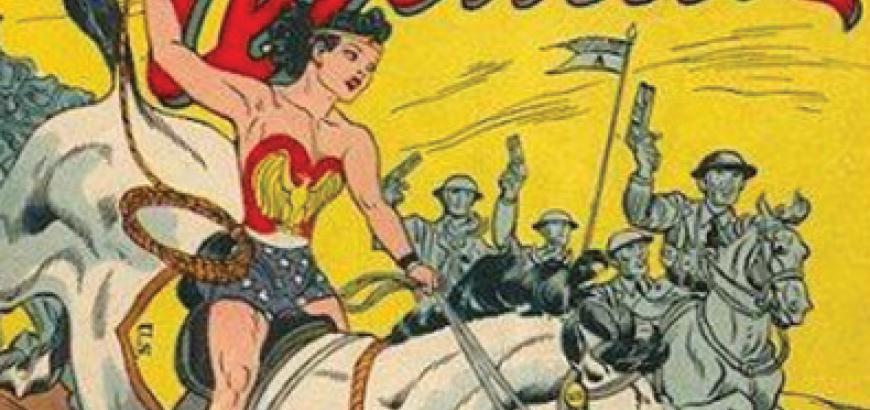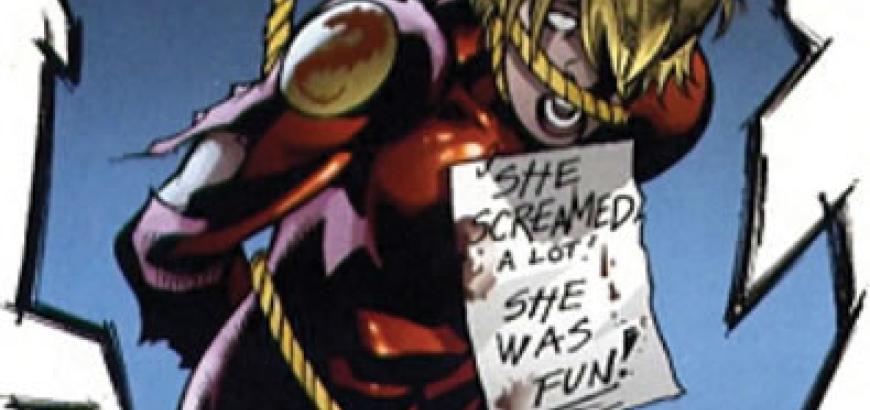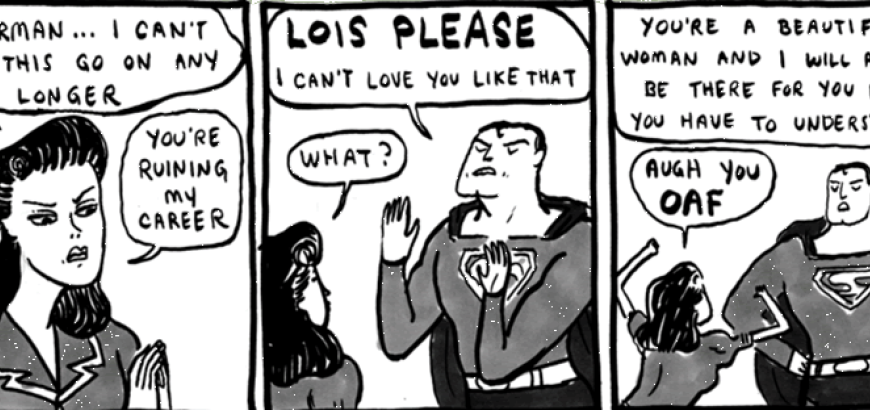Participating in Geek Girl Conference 2013 was not an option I presented to students in my women’s comics course. They presented it to me. Ryker Hodge-Attili (English, Creative Writing) spied the convention programming proposal and argued that students should create a panel based on our formal, thematic, and contextual analysis of female-created comics. I encouraged participation because events like GeekGirlCon allow students to connect academic analysis with their readerly passion for certain texts and their social interests. GeekGirlCon organizers not only have a stated mission of “empowering the female geek” with “women-centric and woman-positive” programming, but they also solicit involvement from humanities scholars, scientists, industry professionals, artists, and fans.
For the proposal, students considered audience in ways they hadn’t done for class projects. Proposal authors Elk Paauw (Comparative Literature) and Coren Idle (English) analyzed the major threads of inquiry we had addressed as a class via the lens of GeekGirlCon’s suggested panel topics. They wanted our panel to address multiple suggested topics and thus appeal to a large cross-section of likely attendees. They decided to focus on female sexuality in woman-authored superhero comics, graphic autobiographies, and webcomics. Because they knew that they weren’t writing for a primarily academic audience, they investigated both scholarly and popular works as they developed the proposal.
Once the students’ proposal was accepted, Sierra Bott(English, Creative Writing), Ryker Hodge-Attili, and Elk Paauw worked on their panel presentations in a weekly independent study course. Writing for the GeekGirlCon audience encouraged rigorous peer review and revision. As, Elk Paauw remarked “Knowing that my opinions on a topic [would] be presented before an audience really gave me the inspiration necessary to truly dig in and push myself to make it relevant and engaging to others.”
In addition to engaging others, students had to adhere to convention time restrictions, which allowed fifty minutes for three panel presentations and discussion. Consequently, they critiqued every presentation slide, retaining only the visuals necessary to support their claims. To spark dialogue among panelists and audience members, they linked their analyses to existing literature on their topics and to each other’s presentations. Elk Paauw, herself a comics author, found this interaction key to her professional development:
I could actually see the people that [I’d] impacted and talk with them about my research. Not to mention that I got the added bonus of networking with other scholars. In short, this experience vastly improved my public speaking and on-the-fly reasoning skills.
Sierra Bott aptly summed up the importance of participating in events like GeekGirlCon:
Before my participation in GeekGirlCon, I was concerned that the analytical skills I have worked hard to hone in my English courses at the UW’s would not be applicable to anything outside of academia. This conference, however, has proved me wrong on all counts. It opened up a wide range of possibilities for the future – if my ability to analyze texts can be applied to Wonder Woman comics, it leads me to question where else my skills might be useful.
For more information on GeekGirlCon, seewww.geekgirlcon.com.
KIMBERLEE GILLIS-BRIDGES,
Senior Lecturer



